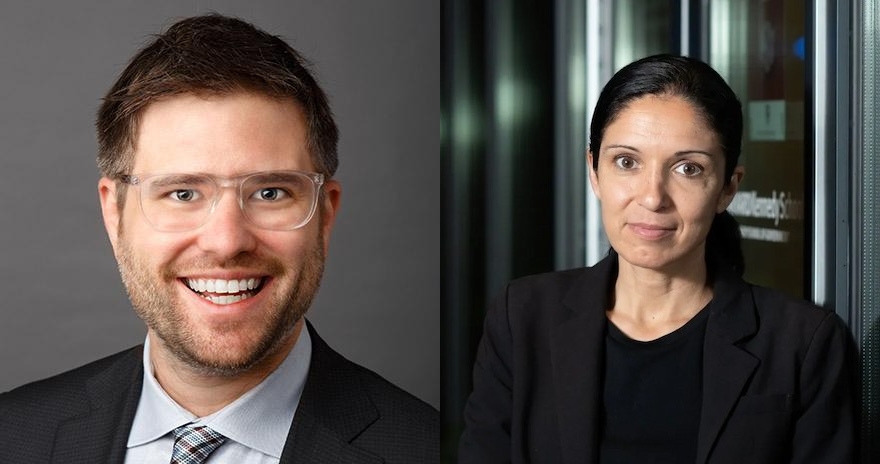HBS, HKS professors win award for best health economics paper

Joshua Schwartzstein is the Cahners-Rabb Professor of Business Administration at Harvard Business School. Marcella Alsan is the Angelopoulos Professor of Public Policy at the Harvard Kennedy School.
Marcella Alsan, Joshua Schwartzstein, and their co-authors have been honored with the 2025 Arrow Award for their paper, “Representation and Extrapolation: Evidence from Clinical Trials.” Alsan is the Angelopoulos Professor of Public Policy at the Harvard Kennedy School, and Schwartzstein is the Cahners-Rabb Professor of Business Administration at Harvard Business School. Since 1993 the Arrow Award has annually recognized the best health economics paper published in English. The International Health Economics Association established the award to honor the life and impact of Kenneth Arrow.
Alsan and Schwartzstein co-authored the paper with Maya Durvasula and Harsh Gupta of Stanford University and Heidi Williams of Dartmouth College. Their research, which appeared in The Quarterly Journal of Economics, examines the causes and consequences of low enrollment of Black patients in U.S. clinical trials. The authors found evidence that underrepresentation and disparities have persisted in part because participants who have historically benefited from medical innovation are less costly to enroll. Their findings emphasize the importance of representation in clinical trials — and policy interventions to increase representation — in order to improve health outcomes.
“When practicing medicine, you’ll often hear physicians look at the evidence and wonder if an intervention that’s proven efficacious in a trial will work on the patients they care for every day. This was an opportunity to rigorously assess whether and to what extent representation in data matters,” Alsan said.
Alsan’s work connects the fields of economics, medicine, and public health policy. An applied microeconomist, Alsan has studied health inequities during the COVID-19 pandemic, the impact of the Tuskegee syphilis experiments on Black men in rural Alabama, and more. Schwartzstein is a behavioral economist who enriches standard economic analyses of belief formation, behavior, market outcomes, and public policy to incorporate modern psychological research on human attention, categorization, and mental models. The duo has plans to continue working on projects at the intersection of behavioral economics and health.
Alsan earned her undergraduate degree from Harvard College, a master’s degree in public health from the Harvard T.H. Chan School of Public Health, a medical degree from Loyola University Chicago, and a Ph.D. in economics from Harvard University. Schwartzstein holds a Ph.D. in economics from Harvard University and a bachelor’s degree in behavioral economics, economics, and mathematics from Cornell University.




